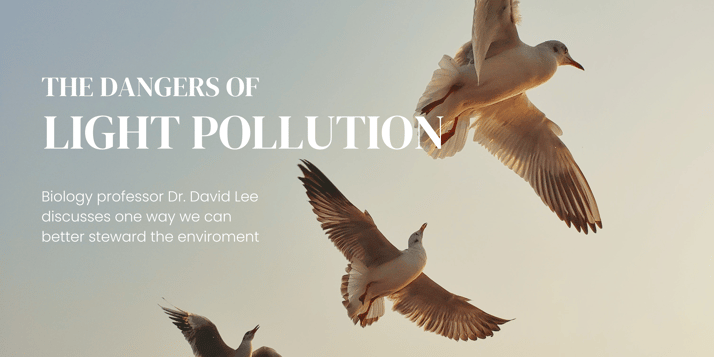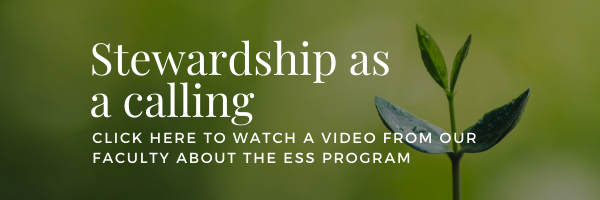
As billions of birds make their annual migration south this fall, thousands or more will be killed by disorienting "light pollution," reported the Audubon Society, an environmental group focused on bird preservation. Artificial lighting, particularly from large buildings, can cause birds to crash into windows or end up flying in circles for hours.
Audubon's "Lights Out" program was created to address this serious problem. The concept is simple: voluntarily dim or shut off unnecessary night-time lighting during migration season. This lets birds fly safely on their way and creates substantial energy savings.
"This is a really good example of the mission of the Environmental Science & Stewardship program," said PHC biology professor Dr. David Lee. "[It] is to help Christians better consider the ways that we can know God, love our neighbors, and steward Creation. Light pollution is something that is more than just unsightly or unseemly. It's something that can actually cause damage."
Birds are not the only victims. Species of sea turtles which hatch at night, Lee explained, use the stars' twinkling reflection to find their way towards the ocean. But development near coastlines and the light pollution that comes with it can disorient the vulnerable hatchlings, giving already formidable predators more time to pick them off.
The damage even extends beyond creatures that depend on the stars. While some birds navigate primarily by Earth's magnetic field, light pollution can still affect them. "For animals that rely on more than one directional indicator [just like a human using both GPS and landmarks] . . . [if] the two don't match up, it can lead to a lot of confusion," Lee said.
Sophomore Luke Burgess deals with light pollution on a regular basis as president of PHC's Astronomy Club. "Light pollution is a big factor in what targets we can see with our current equipment," he said. "Due to our proximity to Washington, D.C., we are limited to looking at bright objects like the Moon and the planets."
Worse still, Lee says that light pollution is also a spiritual danger. Scripture emphasizes that the stars "can lead us to consider our place in relation to God . . . how marvelous His works are."
Lee believes that light pollution diminishes this "general revelation witness." He recalls sharing deeply with a non-Christian research partner about faith, eternity, and God under the stunning starscape of remote northeastern Utah. With more and more people cut off from farmland and wilderness through urbanization, being cut off from the stars by light pollution is an even greater spiritual detriment.
"There's a burden that comes with knowledge," Lee said. While he considers ignoring light pollution an error rather than a sin, he suggested considering the consequences of our actions under the James 4:17 principle: "for him that knows the good that he ought to do and does not do it, it is sin."
"It's something that of course needs to be balanced," Lee added, discussing a potential role for regulatory action. "That's where the element of stewardship comes in. How do you effectively and efficiently use the resources that are given to you in a wise way?"
This is the role of the Christian environmental scientist.
-----
This article was originally published in PHC's weekly student newspaper, The Herald.
Patrick Henry College instructs students with biblical truth and encourages them to lead the community by becoming active participants in the student body. No matter what God has called a student to, PHC aims to produce humble, capable leaders in every field—an increasing rarity in today's world.

.png?width=800&height=400&name=PHC%20(1).png)



